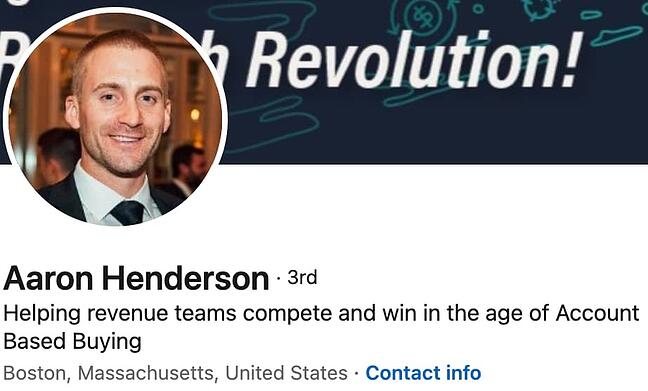
A holding company is a type of corporation that does not produce its own goods or services, but rather acts as a corporate group. Its primary purpose is to serve as a holding company for many companies. A holding company can have several subsidiaries, but some of these companies could be grouped together. In this article we will discuss the advantages and disadvantages of forming a holding company, and the various forms available.
Benefits of starting your own holding company
A holding company is a great way to protect your investment portfolio. While this is relatively simple, it requires a substantial capital backup. The majority of holding companies purchase large blocks, making them a solid business model for experienced investors. Below are some benefits to starting a holding business. These companies are ideal for small business owners who wish to limit their liability and protect their assets.
As they are shielded from other business risks, holding companies can reduce the cost of operating capital. Bakery can stop collecting on its subsidiaries' assets if it goes bust. In order to finance lower-interest debt, subsidiaries may be eligible for downstream guarantees. Furthermore, because holding companies can sell shares of their failed subsidiaries, their risk of default falls substantially. It is also beneficial for the operating company, since it lowers its liability.

Advantages and disadvantages of starting a company holding company
The advantages of starting your own holding company far outweigh any disadvantages. However, there are still some issues. A holding company is able to get better financing terms because it pools its resources. Additionally, holding companies can control many more businesses with less capital. Holding companies can easily become the largest shareholder by buying the majority of stock in an LLC.
It's not easy to set up a company holding. First of all, you need to decide on what type of entity your holding company will be. You will need to decide whether it is a corporation, LLC, limited liability or LLC. Once you have decided on the type of business entity you want, you will need to determine its tax structure. But holding companies must be independent from other businesses. For example, a limited liability company should not be a holding company that conducts its own business.
Tax implications for starting a holding business
The tax consequences of starting an organization as a holding company will vary depending on the way it is set up. Businesses with one owner are treated as sole proprietors and need not file with the IRS. However, they are responsible for reporting all of their profits on their tax returns. A holding company that has two owners will be treated as a partnership, and each owner is responsible for paying the taxes.
Administrative ease is another consideration, in addition to tax implications. Many lenders require that companies operate through holding corporations to reduce the risk of compliance and enforcement. However, it is unlikely that a company set up solely for tax reasons will achieve the tax benefits it was originally intended. It is therefore important to weigh the advantages and disadvantages of establishing an holding company before you make any final decisions.

There are many forms of holding companies
There are many different types of holding businesses. A holding corporation is a company that has control over another company. Its owners generally own most of the shares of the companies that it controls. To form a holding company, you must sign a contract that authorizes the formation of the entity. Legal counsel is also required in this matter. Here are some examples of different types of holding companies. Let's begin with the most basic.
A pure holding firm is the first type. This type is used to hold stock in another business. It does no business. A mixed holding company is another type, where it controls other businesses and also manages its own operations. A conglomerate is a holding-operating business. The company's name refers to the fact that it owns several other companies. All of these entities can be considered holding companies.
FAQ
Why should consultants be hired?
There are many reasons you might need to hire a consultant.
-
A specific project or problem may be a challenge for your company.
-
You are looking to learn new skills or improve your existing skills
-
You'd like to work in conjunction with an expert in a specific field
-
There is nobody else who can do this job.
-
It's overwhelming to see all the information, and you don't know how to get started.
-
You can't afford full-time employment
Referrals are the best way for you to find a qualified consultant. Ask your friends and family if they know of any reliable consultants. Ask your friends and family for referrals if you know someone who is a consultant.
Use the "Search People" function to search for consultants in your region if you are interested in using online directories like LinkedIn.
Do I need to pay tax on consulting income?
Yes. You will have to pay taxes on your consulting profits. The amount of your earnings per year will determine the tax payable.
If you're self employed, you can deduct expenses beyond your salary.
However, you can't deduct interest payments for loans, vehicle depreciation or the cost to purchase equipment.
If you earn less than PS10,000 per year, 25% can be claimed back.
You might be taxed even if you make more than the threshold depending on whether your income is contractor or employee.
The PAYE tax for employees and the VAT tax for contractors is generally paid as you earn.
Which industries use consultants?
There are many different types. Some are specialists in one type or another of business.
Some consultants are limited to working for private corporations, while others can represent large corporations.
Some consultants also work internationally and can help companies around the globe.
What qualifications do you need to be a consultant?
It is not enough to have an MBA degree. You must also have experience as a consultant. A minimum of two years' experience in consulting, training and/or advising a major company is necessary.
You will need to have worked closely alongside senior management teams in order to develop strategy projects. This means you'd have to be comfortable presenting ideas to clients and getting buy-in.
A professional qualification exam, such as the Certified Management Consultant (CMC), of the Chartered Management Institute (CMI), is also required.
Statistics
- WHY choose me: Why your ideal client should choose you (ex: 10 years of experience and 6-week program has helped over 20 clients boost their sales by an average of 33% in 6 months). (consultingsuccess.com)
- "From there, I told them my rates were going up 25%, this is the new hourly rate, and every single one of them said 'done, fine.' (nerdwallet.com)
- 67% of consultants start their consulting businesses after quitting their jobs, while 33% start while they're still at their jobs. (consultingsuccess.com)
- According to statistics from the ONS, the UK has around 300,000 consultants, of which around 63,000 professionals work as management consultants. (consultancy.uk)
- Over 50% of consultants get their first consulting client through a referral from their network. (consultingsuccess.com)
External Links
How To
What Does A Typical Day For A Consultant Look Like?
A typical day will vary depending on the type of work you are undertaking. You will be spending time researching, planning new ideas, meeting with clients, and creating reports.
You'll often have meetings with clients where you can discuss issues and solve problems. These meetings may be over the phone via email, on-line, or face-to–face.
You may also be asked to prepare proposals, which are documents outlining your ideas and plans for clients. These proposals should be discussed with a mentor or colleague before being presented to clients.
After all the preparation, you'll need to start creating content. You might be creating articles, videos, editing photos, writing interviews, or designing websites.
Depending on your project's scope, it may be necessary to do research to get relevant statistics. For instance, you might want to find out how many people you have and if they are buying more than just one product or service.
Once you have enough information, it is time to present your findings and conclusions to clients. You may give your findings orally or in written form.
After the initial consultation, it is important to follow up with clients. You could phone them occasionally to check on things or send an email asking them to confirm that you have received their proposal.
This is a long process that can take some time. However, it is crucial to stay focused and to maintain good relationships.